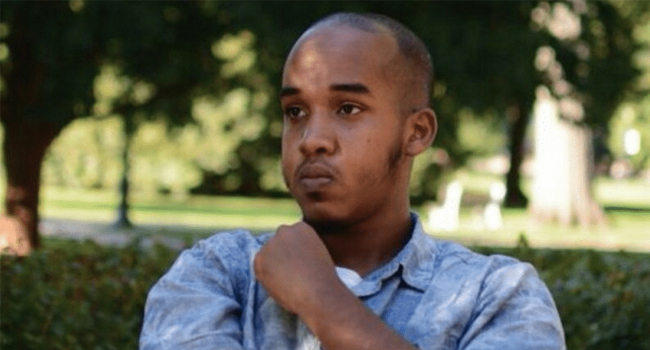
Another “lone wolf” Muslim has committed an act of terrorism on an American campus, ramming a crowd with a vehicle before slashing fellow-students with a butcher knife and receiving a fatal bullet for his reward. Fittingly, the New York Times, in reporting this barbarous and outrageous crime at Ohio State University, devoted three paragraphs to wondering aloud as to whether the perpetrator, Abdul Razak Ali Artan, had a reasonable motive:
The F.B.I. was investigating comments on Facebook indicating that he may have felt Muslims were being persecuted, an investigator said.
Last summer the student newspaper, The Lantern, published an interview with Mr. Artan in which he complained about being afraid to pray in public as a Muslim, because of people’s negative perceptions of the religion.
“I was kind of scared with everything going on in the media. I’m a Muslim, it’s not what media portrays me to be,” he told the newspaper. “If people look at me, a Muslim praying, I don’t know what they’re going to think, what’s going to happen. But I don’t blame them. It’s the media that put that picture in their heads.”
This is a news article, not an editorial, yet the Times made sure to “report”—before giving the details of the crime—that federal law-enforcement officials were on the scene to investigate bigotry. “Persecution,” then, is the necessary lens through which we are to interpret Abdul Artan’s brutality against college students, whose crime was to stand on campus as people who are Not-Abdul-Artan. Artan vented on Facebook about America’s wars against the Ummah, but for him, the persecution was felt personally.
But surely, when we say “persecution,” we’re not talking about burnings at the stake or dens of lions. Persecution means looks askance, slighting comments, and awkward exchanges. It means facing other students who associate your outward expression of faith (“religion”) with things that are foreign and potentially threatening to them. It means living among people who are “kind of scared.”
Thus the native-born American Other becomes a member of the Army of Infidels that is dropping bombs on the Ummah. Killing him is an act of self-defense.
Might it just be that any son of a Muslim “refugee,” raised on one hand as a member of the Snowflake Generation, for whom insults are intolerable acts of persecution, and as a member of the Ummah in the land of the infidel on the other, is almost necessarily schizophrenic? And that such a living human powder keg is just one good google away from discovering that the internal jihad he lives with every day is best alleviated by having an external one? How would ISIS or Al-Awlaki not appeal to such a person?
America continues to refuse to be taught the hard lesson that tolerance is not itself a virtue, but rather the result of charity. But charity is something that sinful people have to work at, which means that it has limits, and any humane society ought to respect those limits. It may be painful for some to admit, but certain religions (or ideologies) and their cultures cannot “co-exist.”
“If men were angels,” wrote James Madison, “no government would be necessary.” But no human government can successfully mandate tolerance, let alone charity. The assumption that one could do so amounts to believing that government can turn men into angels.
Charity has to have some basis, some higher, transcendent authority beyond self-actualization or arbitrary “universal values” to which it may appeal, and by which it may be judged. Christianity provides that. Left-liberalism doesn’t. It has nothing to say to the Muslim Snowflake, beyond “You have good reason to be violently angry, but please don’t do anything about it.”
Leave a Reply